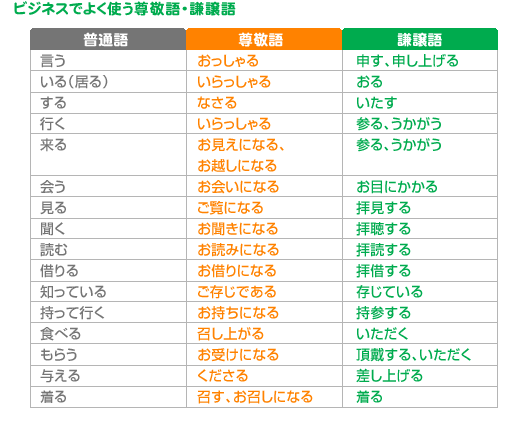currently studying korean, japanese and spanish // IG: @kayapan.n (art) @kaya.studies (study)
Don't wanna be here? Send us removal request.
Text
1 Month Grammar Challenge Day 16 - ~かねる, ~かねない
Day 16 - I tend to mix these two up because I always expect かねない to be the more negative in meaning and can never remember which way round they’re supposed to be.
~かねる 動ます + かねる “Hesitate to; cannot; hard to do” Something is difficult or impossible to do because of the speaker’s position or some condition. This is not used to show a lack of ability. It is formal and used mainly in written language. 決めるに決めかねる and 見るに見かねて are idiomatic expressions.
例)この計画に賛成しかねます。 例)彼の意見は他者の権利を無視して聞きかねる。
~かねない 動ます + かねない “Can do [something]; it is very possible; might” Gives a possibility of a bad result based on the current situation. It is also used in formal language. It is similar to かもしれない and ないとはいえない but is only used for something that the speaker evaluates negatively.
例)風邪をひいたが、まだ仕事を続けて休まないと体調がもっと悪くなりかねない。 例)企業は地球温暖化の問題に大影響があって二酸化炭素の排出を減少しないと、嵐の損害や海面上昇は早めかねない。
95 notes
·
View notes
Photo

Credits: j.aetudie on ig
(permission to repost granted by author :) )
279 notes
·
View notes
Text
ghibli movies said youre gonna be really confused for 1hr 30mins but it’ll be breathtaking so you wont even be mad about it
76K notes
·
View notes
Text
French Youtube Channel Recommendation
I recently found this fantastic Youtube channel for French learners. It’s called Piece of French.

The content varies between videos teaching French, like the one about slang that you see in the picture below, and videos in French. It’s very good for beginner and intermediate learners, since the owner of the channel speaks slowly and enunciates clearly, and there are subtitles in French and English.

Click here to check it out!
33 notes
·
View notes
Text
Japanese lesson 25
Today's theme is "Meet up".
今日のテーマは「待ち合わせ」です。
(きょうの てーまは まちあわせ です)
1.Let's meet up at Osaka station.
大阪駅で待ち合わせしよう!
(おおさかえきで まちあわせ しよう)
2.Meet me at Tokyo tower.
東京タワーで待ち合わせしよう。
(とうきょうたわーで まちあわせ しよう)
3. What time and where do you want to meet up?
何時にどこで待ち合わせする?
(なんじに どこで まちあわせする)
You should use it!
See you again!!
238 notes
·
View notes
Text
Transportation +verbs/nouns in Japanese

Verbs that apply to all means of transportation
乗る(のる)to get on; to take; to ride (a bike or bus); to board 降りる(おりる)to get off 到着する(とうちゃくする)to arrive 出発する(しゅっぱつする)to leave
TRAIN 電車 でんしゃ
東京駅で降りる. Get off the train at Tokyo station
午後6時に電車に乗ります. I’ll take the train at 6 p.m.
related phrase: give me a ride; from the verb 乗せる(のせる) 乗せて・乗せてください・乗っけて
PLANE 飛行機 ひこうき
Verbs: 離陸 (りりく; suru verb) takeoff (to take off)
着陸 (ちゃくりく; suru verb) landing (to land)
その飛行機は無事に着陸した。The plane landed safely.
飛行機が離陸する. An airplane takes off.
CAR 車 くるま
Verbs: 燃料を補給する (nenryō o hokyū suru); to supply with gasoline; to refuel; to put the gas in the car
ガソリンを入れる to put the gas (in the car)
TRUCK トラック
Verbs: 積む (つむ)to load (a vehicle; a ship) 積み込む (つみこむ)to load (with goods, cargo); to put on board; to stow aboard (I’m yet to learn what’s the difference between the two)
積む is used more generically to talk about piling up or stacking things - sometimes as part of loading things onto a vehicle, sometimes just making piles of things in other situations. It’s also used with metaphorical piles/loads of things. 積み込む is specifically loading onto a vehicle (anything from loading luggage into your car to loading cargo onto a ship, which you then might 積む)
BICYCLE 自転車 じてんしゃ
BUS バス
Nouns: Bus Station バス乗り場( のりば; can be tagged to other forms of transportation.)
Bus stop バス停 (ばすてい)
バス停で待っています. I’m waiting at the bust stop.
BOAT ボート(船)/ SHIP 船 ふね I’ve never been on a boat so I’m not even sure what are the most common verbs to use with these two.
搬送する (はんそうする) to sail
TIRE タイヤ
Verbs: 交換する (こうかんする) to change
Nouns: パンク flat tire; puncture (suru verb)
パンクをした. I got a flat tire.
パンクしたタイヤの交換方法. How to change a flat tire.
GASOLINE ガソリン (燃料; fuel)
ガソリンを入れる
ENGINE エンジン
TICKET 乗車券 (じょうしゃけん) ticket (bus, train, etc.; passenger ticket
切符 (きっぷ ) or チケット or ken 券 (けん). Ken is typically used when paired with other Japanese travel phrases and words. For example, a limited express ticket is called tokkyuuken (特急券).
https://www.youtube.com/watch?v=9TuVRCXynpA&feature=youtu.be
https://www.youtube.com/watch?v=XGMGjV_57oU&feature=youtu.be
Noun: 切符売り場 (きっぷうりば) Ticket Sales
TRANSPORATATION 運輸 うんゆ
184 notes
·
View notes
Text
You can say a surprising amount with ~300 words. Spanish version/Versión en español.
Original english version posted by @funwithlanguages here
First Verbs
be = Ser/Estar
there is = Hay (Haber)
have = Tener
do = Hacer
go = Ir
want = Querer
can = Poder, Saber
need = Necesitar
think = Pensar
know = Saber
say = Decir
like = Gustar
speak = Hablar
learn = Aprender
understand =Entender
Conjunctions
that (as in “I think that…” or “the woman that…”) = que (”pienso que…, la mujer que…
and = Y
or =O
but =Pero
because =Porque
though =Aunque
so (meaning “therefore”; e.g. “I wanted it, so I bought it”) =Por lo tanto, así que (Lo quería, así que me lo compré)
if =Si
Prepositions
of =De
to =Hacia
from =Desde
in =Dentro
at (a place) =En (en un lugar: En el parque)
at (a time) =A (a X hora: A las 10pm)
with =Con
about =Sobre
like (meaning “similar to”) =Como, parecido(parecer) (Ex: Esa casa es parecida a la mía/ Esa casa es como la mía)
for (warning, this one has several meanings that you need to take care of) =Para
before (also as a conjunction) =Antes
after (also as a conjunction) =Después
during =Durante
Question Words
who =Quién
what =Qué
where =Dónde
when =Cuándo
why =Por qué
how =Cómo
how much =Cuánto (¿cuánto es…?/¿Cuánto cuesta….?)
which =Cuál
Adverbs
a lot =Mucho
a little =Un poco
well =Bien
badly =Mal, malamente
only =Solo
also =También
very =Muy
too (as in “too tall”) =Muy (muy alt@)
too much =Demasiado
so (as in “so tall”) =Tan (tan alto)
so much =Tanto
more (know how to say “more … than …”) =más que (X es más alto que Y)
less (know how to say “less … than …”) = menos que (X es menos alto que Y)
as … as … (e.g. “as tall as”) =tan como (X es tan alto como Y)
most =el/la mayor, la/el que más (la que más gusta es X)
least =el/la menor, la/el que menos (el que menos gusta es X)
better =Mejor que
best = El mejor/La mejor
worse =peor que
worst=El peor/La peor
now =Ahora
then =Entonces
here =Aquí
there =Allí
maybe =Quizá, puede
always =Siempre
usually =Normalmente
often =Frecuentemente, con frecuencia
sometimes =A veces
never =Nunca
today =Hoy
yesterday =Ayer
tomorrow =Mañana
soon =Pronto
almost =Casi
already =Ya
still =Todavía
even =Incluso
enough =Suficiente
Adjectives
the, a (technically articles) =El, la
this =Este, esta, esto
that =Ese, esa, eso
good =Bien, buen@
bad =Mal@
all =Todo
some =Algo
no =No
any =Algo, alguna, alguno
many =Much@(s)
few =Poc@(s)
most =Casi todo
other =Otr@
same =El mismo, la misma, lo mismo
different =Diferente
enough =Suficiente
one =Uno
two =Dos
a few =Unos pocos, unas pocas
first =Primero
next =Siguiente
last (meaning “past”, e.g. “last Friday”) =Pasado, anterior (el viernes pasado)
last (meaning “final”) =último, el último, la última (la última ganadora de esta edición fue X)
easy =Fácil
hard =Difícil, duro
early =Pronto
late =Tarde
important =Importante
interesting =Interesante
fun =Divertid@
boring =Aburri@
beautiful =Guap@, hermos@, bell@
big =Grande
small =Pequeñ@
happy =Feliz
sad =Triste
busy =Ocupad@, ajetread@
excited =Emocionad@, ilusionad@
tired =Cansad@
ready =Preparad@, list@
favorite =Favorit@
new =Nuev@
right (meaning “correct”) =Correct@, acertad@
wrong =Equivocad@, incorrecto
true =Verdad, verdadero, cierto
Pronouns
Know them in the subject (“I”), direct object (“me”), indirect object (“to me”), and possessive (“my”) forms.
I =Yo/Me/A mi/mi, mío
you =Tú/Te/A tí/Te
she =Ella
he = Él
it = ello
we =Nosotr@s
you (plural) =Vosotr@s
they =Ell@s
Nouns
If your language has grammatical gender, then learn each noun as “the [noun]” with “the” in the correct gender. (e.g. in Spanish, instead of learning language = “idioma”, learn language = “el idioma”.) This will help you remember the gender.
everything =Todo, el
something =Algo
nothing =Nada, la
everyone =Todo el mundo, tod@s
someone =Alguien
no one =Nadie
(name of the language you’re studying) =Castellano, español
English =Inglés, el
thing =Cosa, la
person =Persona, la
place =Lugar, el
time (as in “a long time”) =Tiempo, el (durante mucho tiempo, hace mucho tiempo)
time (as in “I did it 3 times”) =Vez/veces, la/las (Lo hice 3 veces, lo repetí 3 veces)
friend =Amig@
woman =Mujer, la
man =Hombre, el
money =Dinero, el
country =País, el
(name of your home country) =España
city =Ciudad, la
language =el Idioma, la lengua
word =Palabra, la
food =Comida, la
house =Casa, la
store =Tienda, la
office =Oficina, la
company =Compañía, empresa, la
manager =Gerente, el/la
coworker =Compañer@ de trabajo
job =Trabajo, empleo, el
work (as in “I have a lot of work to do”) =Trabajo, el (tengo mucho trabajo que hacer, tengo mucha carga de trabajo)
problem =Problema, el
question =Pregunta, la
idea =Idea, la
life =Vida, la
world =Mundo, el
day =Día, el
year =Año, el
week =Semana, la
month =Mes, el
hour =Hora, la
mother, father, parent =la Madre, el Padre, losPadres [also los Progenitores for a more gender neutral one]
daughter, son, child =Hij@
wife, husband =la Esposa/mujer, el Esposo/marido
girlfriend, boyfriend =Novi@
More Verbs
work (as in a person working) =Trabajar (una persona trabaja)
work (meaning “to function”, e.g. “the TV works”) =Funcionar (la televisión funciona bien/mal/regular)
see =Ver
use =usar
should =Deber
believe =Creer
practice =Practicar
seem =Parecer
come =Comer
leave =Dejar, abandonar
return =Devolver, volver
give =Dar
take =Coger
bring =Traer
look for =Buscar
find =Encontrar
get (meaning “obtain”) =Obtener, conseguir
receive =Recibir
buy =Comprar
try =Intentar
start =Empezar, comenzar
stop (doing something) =Parar, detener(se), dejar de hacer algo
finish =Terminar, acabar
continue =Continuar
wake up =Despertar(se)
get up =Levantarse, incorporarse
eat =Comer
eat breakfast (in several languages, this is a verb) =Desayunar
eat lunch =Comer
eat dinner =Cenar
happen =Ocurrir
feel =Sentir, pensar que
create (aka “make”) =Hacer, crear
cause (aka “make”) =Causar, hacer
meet (meeting someone for the first time) =Conocer a alguien por primera vez
meet (meaning “to bump into”) =Encontrarse con (me encontré con mi amigo cuando iba a comprar)
meet (an arranged meeting) =Quedar con
ask (a question) =Preguntar, hacer una pregunta
ask for (aka “request”) =Pedir
wonder =Preguntarse
reply =Responder
mean =Significar
read =Leer
write =Escribir
listen =Escuchar
hear =Oír
remember =Recordar
forget =Olvidar(se)
choose =Elegir, escoger
decide =Decidir
be born =Nacer
die =Morir
kill =Matar
live =Vivir
stay =Quedar(se)
change =Cambiar
help =Ayudar
send =Enviar
study =Estudiar
improve =Mejorar
hope =Esperar
care =Preocupar(se), preocupar(se) por
Phrases
hello =Hola
goodbye =Adiós
thank you =Gracias
you’re welcome=De nada
excuse me (to get someone’s attention) =Disculpa. Perdona
sorry =Lo siento/Perdón/Perdóname
it’s fine (response to an apology) =No pasa nada
please =Por favor
yes =Sí
no =No
okay =Vale, ok
My name is =Mi nombre es… Me llamo
What’s your name? =¿Cómo te llamas?¿Cual es tu nombre?¿Cómo se llama (usted)?
Nice to meet you. =Encantad@ de conocerte/conocerle
How are you? =¿Cómo estás?/¿Cómo te encuentras?/¿Qué tal estás?
I’m doing well, how about you? =Bien, ¿y tú/usted?
Sorry? / What? (if you didn’t hear something) =¿Perdóna?/¿Perdón?/¿Cómo?
How do you say ______? =¿Cómo se dice X?/¿Cómo dices X?
What does ______ mean? =¿Qué significa X?/¿Qué quiere decir X?
I don’t understand. =No (lo) entiendo
Could you repeat that? =¿Puedes repetir(lo)?/¿Puede repetir(lo)?
Could you speak more slowly, please? =¿Puedes hablar más despacio, por favor?/¿Puedes ir más lento, por favor?
Well (as in “well, I think…”) =Bueno, creo que…
Really? =¿En serio?/¿De verdad?
I guess that =Supongo que…/Creo que…
It’s hot. (talking about the weather) =Hace calor.
It’s cold. (talking about the weather) =Hace frío.
Note: Words with “@” have both articles “el” and “la”. Example: hij@ –> el hijO, la hijA. Amig@ –> el amigO, la amigA
If you find any mistakes or you have any doubts feel free to ask me here!
119 notes
·
View notes
Text
How to write formal Japanese emails・正式な日本語のメールの書き方

The nonprofit I work for recently gave all us interns a really informative talk on the protocol for writing profession emails in Japanese, so I thought I’d share what I learned with you guys! Just so you know, I’ll be using some advanced vocab (including 敬語) in this post and pretty much won’t gloss any kanji. So if you’re feeling up to it, then let’s go! 行きましょう!
Subject line
For some reason our presenter did this one last, but I’m going to put it at the beginning. As in English subject lines, be plain and mention the specific purpose of your email. I have temporarily lost SO many work emails due to inane or repeat subject lines. Include your last name in the subject line if you think it’s necessary. Here’s a sample subject line for an internship application:
インターンシップ申し込み(XX大学・[名字・名前*])
Here’s one for the nonprofit I work for:
【[非営利団体]】トピック3:コロナウイルス(11月9日開始)
Please don’t ask what I do here…it’s semi-ridiculous. (And I don’t even get paid.)
*If you have a Western name where your given name comes before your family name, it’s more up to you which order you put them in and which one you use in general, especially if you don’t know if your Japanese recipient will be able to recognize which is which (or if you’re like me and your last name is nigh unpronounceable in kana). You might want to think about this on a case-by-case basis.
Addressing the recipient
Usually the first thing you do in an English email is greet who you’re talking to. This is the same in Japanese. Here’s a basic template:
株式会社ABC XX部 [名字・名前]様
First, you name the company* your addressee works for; second, the department; and third, their full name, accompanied by 様(さま), not さん!
*Be careful here: not all companies are 株式会社. Basically, the first line is for their workplace. If you’re a university student like me, you might be emailing someone who works for ABC大学.
Introducing yourself
Next, you should say who you are. The format for this varies on whether you are telling them who you are or reminding them, i.e., if this is your first time emailing them or not. Here’s an introduction template for a university student:
初めてメールをお送りいたします。ABC大学XX学部YY学科*の[名字・名前]と申します。
With a first email, you state that it’s the first email and introduce yourself using 申す to be extra polite. You also state your university (if they don’t work for it already, presumably), your major, and 学科* if necessary. If you’re a double major like me, you can write XX学部 twice in a row.
Here’s a template for a second email:
いつもお世話になっております。ABC大学/XX学部の[名字]です。
Basically, you thank them for talking with you again and briefly reintroduce yourself, depending on if your university or your major is more relevant. No need to use 申す.
*I’ll be honest: I don’t really know what a 学科 is or how it differs from 学部/専攻/専門. Our presenter called it a “sub-major.” No clue what that means. Concentration, maybe? Tread carefully, my friends.
Email body
Just as in English emails, Japanese emails should be simply written and get to the point as immediately as possible. That’s more basic email etiquette than anything—after all, does anyone really want to be reading emails?
You should also use 敬語 in the email body if you can. Pick whether to use 尊敬語 or 謙譲語 and then stick with your choice for the entire email. I gotta say, I have no idea how to decide which one to use! 敬語 is so hard! Do your best!!!

(Also, here’s a 敬語 Quizlet I made a while ago!)
Here are some useful phrases to include in your email body:
XXを添付しておりますので、ご確認お願いいたします。 = I have attached XX for you to check.
ご質問などございましたら、遠慮なくお申し付けください。 = If you have any questions, please do not hesitate to ask.
ご不明な点などございましたら、お気軽にご連絡ください。 = If anything is unclear, please feel free to contact me.
クッション言葉 (cushion phrases)
In classic Japanese fashion, クッション言葉 are phrases used to soften requests, questions, apologies…basically all manner of inconvenience or imposition. These can get pretty long, which seems to go against the general rule of concision in emails, but in Japanese these are very important. Use them in your email body.
Asking for help, making a request:
恐れ入りますが… (note: 入 here is pronounced い)
お手数おかけいたしますが…
ご迷惑おかけいたしますが…
Asking a question:
少々お尋ねしたいことがあります。
Making an apology:
誠に/大変申し訳ございませんが…
There are probably lots more of these to be discovered. Maybe someday a Japanese person will write YOU an embarrassingly polite email!
Closing
Ah, conclusions—the worst part of any piece of writing. Luckily, we have more templates. This is another case where the format varies depending on whether you’ve emailed this person before. Here’s the template for a first email:
お忙しいところ、お手数おかけいたしますが、何卒、よろしくお願い申し上げます。
Probably the most commas I’ve ever seen used in one Japanese sentence. This is all 謙譲語.
Here’s a template for if you’ve emailed them before:
今後とも/引き続きよろしくお願いいたします。
Basically, you have to thank them for their continued support/tolerance of you.
Signature
And here we have just what we did for the addressee at the beginning, but now for you, the sender.
[名字・名前] ABC大学XX楽部XX学科* 携帯番号:XXX メール:YYY@
Optionally, you can also link any webpage you might have (like LinkedIn) or include your home, school, or business address. I’m not totally clear on what the protocol is surrounding your cell phone number, since in the US at least I would never give that out in an email signature, but you can probably delete it or easily replace it with a work number.
*Again, substitute your place of work if necessary.
お疲れ様でした!
Yikes, that was a lot of content at once, especially since most of it is just canned phrases to memorize or keep on hand. I hope this will help you guys in all your scary email-writing endeavors!! またこの次までね!
482 notes
·
View notes
Text
I feel that in the studyblr community nobody actively talks about the study environment some of us have, so shoutout to those students that:
• live with their parents (not everyone goes to college/uni where they have dorms, and even then, not everyone can afford it)
• have to deal with parents/family members constantly arguing in the background
• work / have to worry heavily about just getting by (paying rent, groceries, medication)
• need loud music to study and drown outside noises
• can not "study prettily" at coffee shops
• take care of other family members, and thus have to be ready to drop whaterever they are doing to assist them at any time
• can not concentrate or get "in the zone" no matter what they do
• do not have a personal computer/tablet
• do not have a room of their own
• are neurodivergent and the advice of most study masterpost/tips is not applicable.
You are valid, you are seen, you are not alone. If nobody has told you already: if you are trying the best you can then the best you can is good enough.
sincerely, a student who needed to hear this.
7K notes
·
View notes
Text
一日千秋
いちじつせんしゅう
(waiting) impatiently
(spending) many a wary day
each moment seeming like an eternity
あなたのお帰りを一日千秋の思いでお待ちしています。
あなた の おかえり を いちにちせんしゅう の おもいで おまちしています。
I await your return impatiently.

76 notes
·
View notes
Text
The ser/estar acronyms
ser – DOCTOR (Description, Occupation, Characteristic, Time, Origin & Relationship)
estar – PLACE (Position, Location, Action, Condition & Emotion).
260 notes
·
View notes
Text
Korean Grammar — What is the difference between ~다 보니, 고 보니 and 아/어 보니, and the difference between 다 보면 and 고 보면?
48 notes
·
View notes
Text
Different ways to express ‘just’ in Korean
In English, we use the word ‘just’ in many situations. In Korean these words below can all translate to ‘just’ but are appropriate for different situations.
그냥 - this is a good filler word and a common way to start a sentence in conversation. It means ‘as it is; as it stands; without any special meaning or intention’. Examples:
그냥 집에서 쉬었어요 = I just chilled at home (~I didn’t do anything special)
그냥 가고 싶지 않아 = I just don’t want to go (~for no particular reason)
만 - this can be attached after a noun to mean ‘only; just’ that noun, perhaps when something is smaller/fewer that what one might expect. Examples:
소주 한병 4,000원만? = A bottle of soju for only 4,000 won? (~it’s really just that cheap?)
어제 나는 물만 마셨어요 = Yesterday I drank only water (~nothing more)
좀 - (Post about using this here) This can be placed before the verb when you are asking someone for do something for you. It usually means ‘small’, but here it acts to minimise the request you are asking of them. Examples:
맥주 좀 주세요? = Could you just give me a beer? (~no pressure, just this small favour)
문을 좀 열어세요 = Just close the door (~if you don’t mind)
43 notes
·
View notes
Text
Voting in Japanese
Voting Vocabulary
選�� せんきょ election
投票 とうひょう voting, poll
投票する とうひょうする to vote
選挙人登録 せんきょにんとうろく voter registration
有権者 ゆうけんしゃ voter, constituent
投票権 とうひょうけん voting right
政党 せいとう political party
People Who Get Elected
総理大臣 そうりだいじん prime minister
大統領 だいとうりょう president
知事 ちじ (prefectural) governor
市長 しちょう mayor (lit. head of a city)
区長 くちょう head of a ward
議員 ぎいいん member of the Diet, member of parliament, member of Congress
政治家 せいじか politician
Government-Related Vocabulary
国会 こっかい National Diet (of Japan) [Japan’s parliament]
参議院 さんぎいん House of Councillors (upper house of the National Diet of Japan)
衆院 しゅういん House of Representatives (lower house of the National Diet of Japan)
議会 ぎかい congress, parliament, diet, legislative assembly

[The gif above is from politician Ryutaro Nonomura’s viral weeping apology(?) for charging ¥3 million for 195 business day-trips to an onsen resort in 2013.]
84 notes
·
View notes
Text
Hanja Idioms(사자성어) - ㄱ
고진감래 苦盡甘來
苦 쓰다 bitter 盡 다하다 to exhaust 甘 달다 sweet 來 오다 to come
After bitterness comes sweetness.
After hardship comes joy.
금상첨화 錦上添花
錦 비단 silks 上 위 top 添 더하다 to add 花 꽃 flower
To add flower on top of silks.
Good things added to good things.
괄목상대 刮目相對
刮 눈을 비비다 to rub one’s eyes 目 눈 eye 相 서로 each other 對 대하다 to treat
Rub one’s eyes and look at the other person.
A person’s learning and skill have improved surprisingly.
감언이설 甘言利說
甘 달다 sweet 言 말씀 words 利 이롭다 beneficial 說 말씀 words
Sweet words and beneficial stories(words).
Words adorned to suit others’ preferences or words that seem plausible with favorable conditions.
결자해지 結者解之
結 맺다 to tie, bind/to form 者 사람 person 解 풀다 to untie, untangle/to solve 之 그것 that (어조사, grammatical Hanja)
One who tied it must untie it.
The problems you’ve created must be solved by yourself.
각골난망 刻骨難忘
刻 새기다 to engrave 骨 뼈 bone 難 어렵다 difficult 忘 잊다 to forget
Be hard to forget because it’s engraved on the bones.
The kindness one has shown is too great to be forgotten.
개과천선 改過遷善
改 고치다 to fix 過 허물 fault 遷 달라지다 to change/to move 善 착하다 kind, nice
To correct the mistakes and faults in the past and become a good person.
과유불급 過猶不及
過 지나치다 excessive 猶 오히려 rather 不 아니 not 及 미치다 to reach, meet
Being excessive is the same as lacking.
구밀복검 口蜜腹劍
口 입 mouth 蜜 꿀 honey 腹 배 stomach(belly) 劍 칼 sword
Honey in the mouth and a sword in the stomach.
To seem to be kind and friendly but is intending to harm you.
권선징악 勸善懲惡
勸 권하다 to promote, recommend 善 착하다 good, kind 懲 징계하다 to discipline, punish 惡 악하다 evil
To encourage the good and discipline the bad.
근묵자흑 近墨者黑
近 가깝다 to be close 墨 먹 ink stick 者 사람 person 黑 검다 black
One who stays close to ink turns black.
Being around bad friends gets you into bad habits.
군계일학 群鷄一鶴
群 무리 group, herd 鷄 닭 chicken 一 한 one 鶴 학 crane
One crane in a flock of chickens.
One outstanding person in a group of ordinary people.
-Written and edited by Admin Yu
333 notes
·
View notes
Text
being a student right now is so fucking terrible is anyone coping
78K notes
·
View notes









